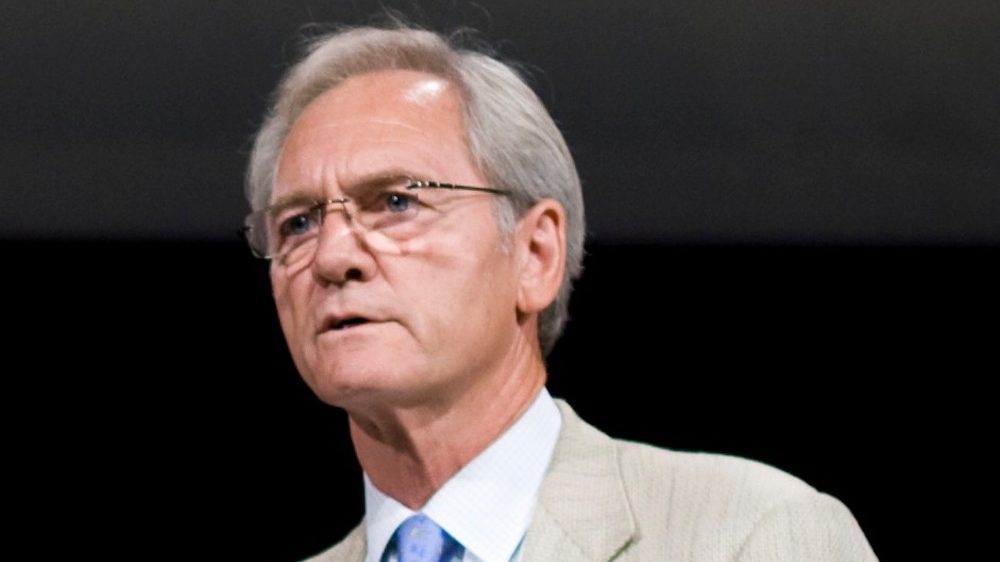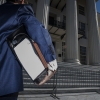Former Alabama Democratic Governor Don Siegelman’s new book, “Stealing our Democracy,” is now in stores. Siegelman’s memoir alleges that his prosecution on corruption charges was based on prosecutorial misconduct by the George W. Bush (R) Department of Justice.
Siegelman was sentenced to 88 months in federal prison, served five years, with long stretches of solitary confinement. Siegelman appealed the conviction and was out for years pending appeals. No federal appeals court ever found in favor of Siegelman so the whole drama, which was featured on the CBS news-entertainment show ’60 Minutes’ at the time, dragged out into a decade. President Barack H. Obama (D) refused Siegelman’s pleas for a presidential pardon. His sentence was finally commuted by the incoming Donald J. Trump administration in 2017.
Siegelman claims that he was a literal political prisoner cut off from media interviews and outside contact.
Stealing Our Democracy claims that the Department of Justice was used as a political weapon to strip him of his freedom and his career. Siegelman’s victory over incumbent Gov. Fob James (R) in 1998 was the first victory by a Democratic nominee in an Alabama gubernatorial race since George C. Wallace (D) in 1982. Siegelman’s narrow defeat by Congressman Bob Riley, R-Ashland, in 2002 limited Siegelman’s tenure to just one term. Siegelman ran for governor again in 2006; but the Bush Administration’s indictments against him weighed down his candidacy and he lost the Democratic primary to Lt. Gov. Lucy Baxley (D). Ms. Baxley was trounced by Riley as has every Democratic nominee for governor since then. Siegelman’s defenders claim that his conviction, “Brought Alabama’s era of progressive Democratic populism to an end.”
Siegelman’s book is an intensely personal account of how he claims our system can fail and be abused for political greed. And if it could happen to him, he writes, it can happen to any of us, particularly in this era when there are little restraints on the Department of Justice.
“The real reason I wrote this book was to have a platform to change the criminal justice system. I wrote the political exposé part to let people know what happened, how, why, and by whom,” Siegelman wrote. “I felt compelled to warn people how political prosecutions and the abuse of power threatens our democracy. I wrote the memoir portion to let people know how I became who I am, how I was elected, and why I became someone who, in their words, “had to be stopped.”
David C. Iglesias is a former Republican U.S. Attorney for New Mexico. He is now an associate professor of Politics and Law at Wheaton College in Illinois.
“If you doubt that politics are the mortal enemy of justice, read Stealing Our Democracy,” Iglesias said. “This is a sobering reminder of the vast powers the federal government has wrongfully used as a sledgehammer to achieve a conviction at any cost. Terrible things happen when you mix politics with prosecutions.”
Law Professor John Farmer is the former Dean of Rutgers Law School.
“Don Siegelman’s story is nothing less than an American tragedy,” Farmer wrote. “Understanding the abuses he experienced may well be the first step to ending them and to healing our broken politics.”
Siegelman claims that he was targeted by the Bush DOJ on the orders of GOP strategist and top Bush White House political strategist Karl Rove, because they feared a Siegelman run for the presidency in 2004.
Prosecutors claim that Gov. Siegelman appointed then HealthSouth CEO Richard Scrushy to the Alabama Certificate of Need Review Board in exchange for bankrolling the political campaign for Siegelman’s 1999 lottery referendum. The Board issued a CON to HealthSouth allowing Scrushy to build a new hospital on the HealthSouth campus in south Birmingham along U.S. Highway 280 near the Shelby County line. Despite the efforts of Scrushy and Siegelman, the voters soundly rejected Siegelman’s lottery proposal despite early polling showing that voters were in favor of a lottery.
Scrushy began building his hospital; but the corporation was exposed as having doctored their financial statements to appear more profitable than it was. A string of Scrushy ‘s chief financial officers (CFOs)accepted plea deals and testified that they falsified the public reports on Scrushy’s direct orders. Scrushy’s defense team claimed that they were all liars and that Scrushy did not know anything about the conspiracy to defraud investors. The Birmingham jury found Scrushy not guilty, Siegelman had also been indicted by federal authorities on corruption charges; but that case fell apart as a federal judge barred most of the evidence in pretrial motions. Both men had gone up against federal prosecutors and prevailed. U.S. Attorney Leura Canary then indicted the two of them for bribery in relation to Scrushy’s appointment to the CON Review Board. Siegelman rejected, and rejects to this day, that that amounted to bribery under the federal statute. The Montgomery jury however agreed with prosecutors and found both men guilty.
Trinity Medical Center on Montclair Road would later buy the unfinished hospital from the troubled HealthSouth Company. Trinity abandoned its plans to build a new hospital in Irondale and instead finished the Scrushy hospital. It is now Grandview.




















































